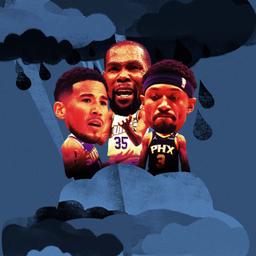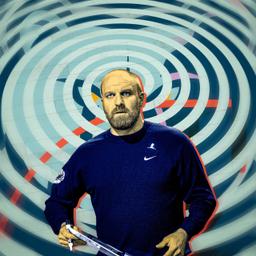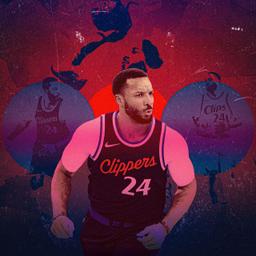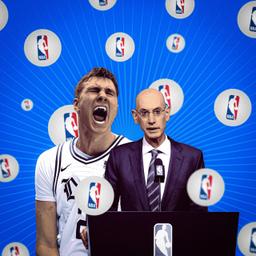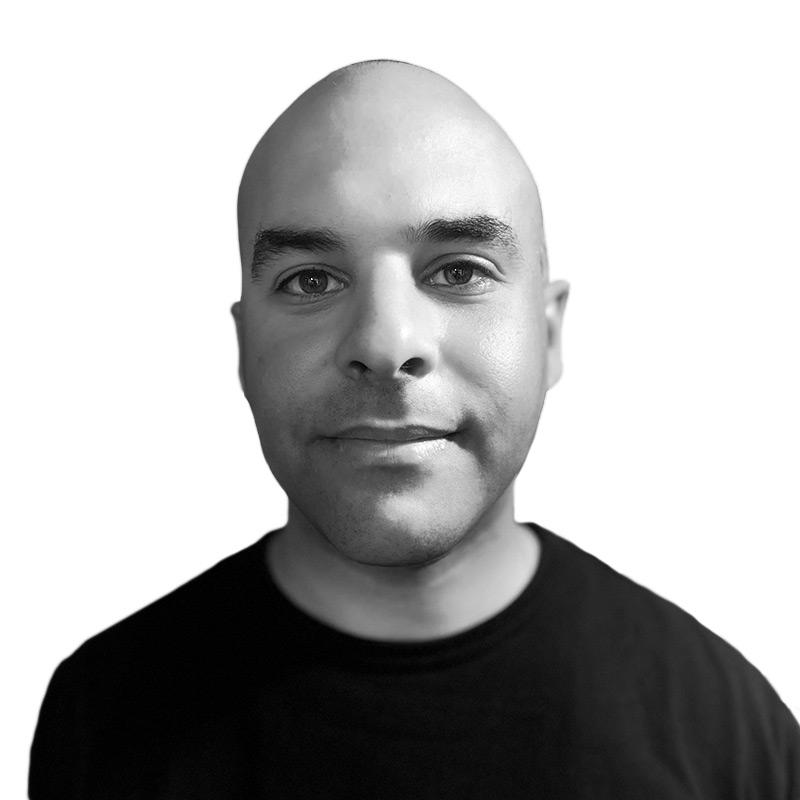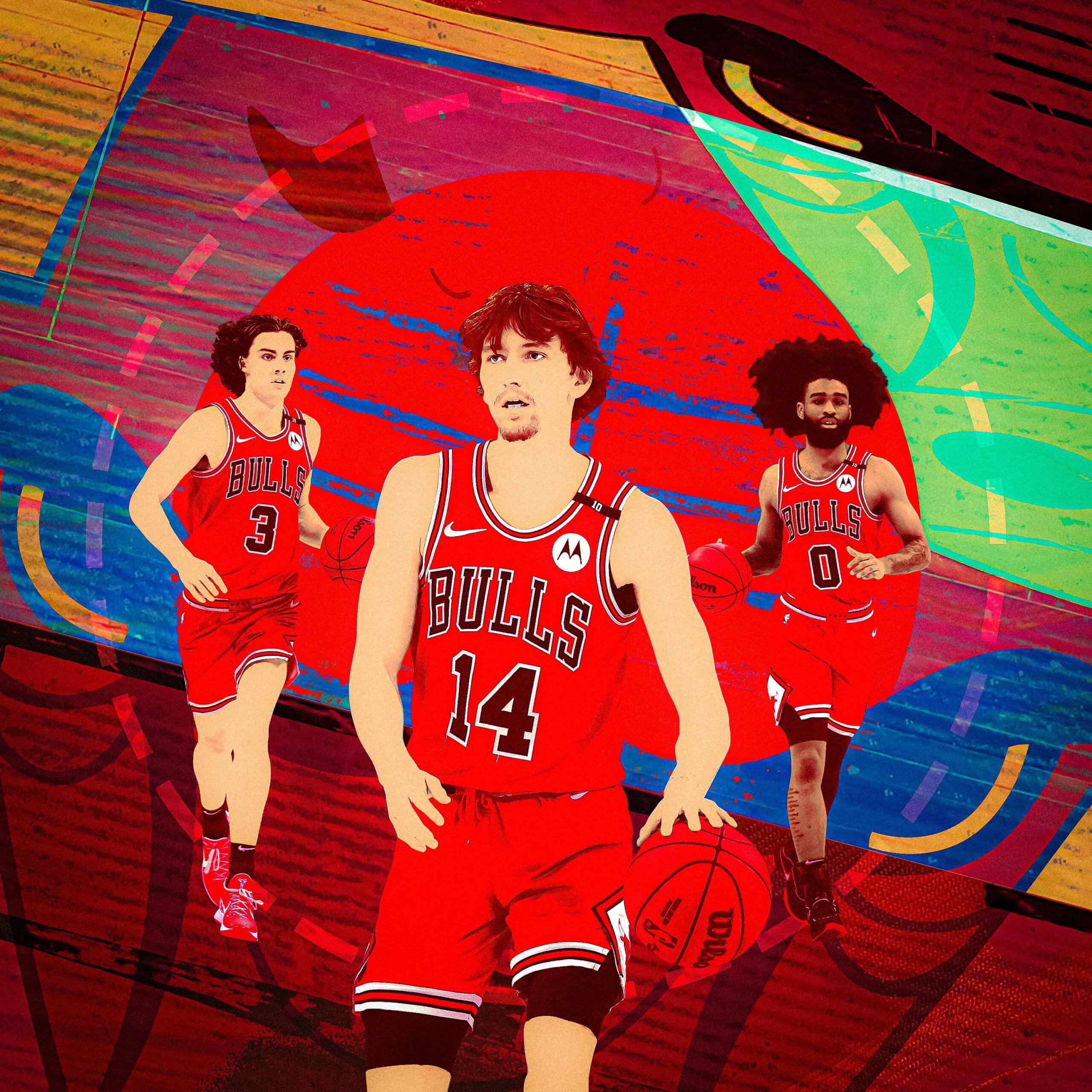
Since Arturas Karnišovas was hired to lead the Chicago Bulls back to glory nearly five years ago, there hasn’t really been an opportunity for him to take anything that even remotely resembles a victory lap. But last week, after they won eight of their previous 10 games, the Bulls’ executive vice president of basketball operations finally got his chance.
“Well, you know, it’s good that we’re doing this in the second quarter before the score gets pretty bad,” Karnišovas joked, in the middle of an extremely memorable game against the Los Angeles Lakers. “But no, the last 10 games this group has been playing great.” He then went on to highlight some standout individual performers and their collective acceptance of head coach Billy Donovan’s exciting style of play before essentially getting asked about the state of the team and how long it’ll take to once again be among the NBA’s elite: “Patience, right? Especially with this group. … Hopefully they can continue their growth for the next 10 games.”
Right now, the pesky Bulls might be two things at once:
- A babyfaced troupe that plays to its strengths with a high-octane, no-brakes, 3-point-loving style of play.
- A middling pack of overachievers that is punching above its weight during a stretch of the season when a bunch of teams either want to lose or are already looking ahead to the playoffs.
I couldn’t pick up everything Karnišovas was putting down during his appearance, but even before Josh Giddey hit the shot of the season, it was more than fair to acknowledge all the ways Chicago is sensibly trending in the right direction … but it’s also fair to be suspicious about what it all means for the organization’s future. In some ways, the Bulls are the perfect play-in team. They’re fun and new, injecting optimism into a fan base that hasn’t felt any in 12 years. But cynically speaking, they may be the textbook example of an NBA mirage. Instead of being more active at the trade deadline and tanking their way to a higher draft pick in a loaded draft class, they chose to half step their way into a belated teardown.
It’s hard to resist the sudden sugar rush of a feel-good moment that’s about five years overdue, but any success Chicago experiences this late in the season is also a double-edged sword, thanks to the understandable skepticism that’s been tattooed on every Bulls fan’s chest since Tom Thibodeau stalked the sidelines.
Zoom out and you’ll see an organization that hasn’t won a playoff series in nearly a dozen years, floundering through yet another forgettable season as a 9-seed with a core that lacks any foundational centerpiece. Chicago currently ranks 22nd in net rating, which is two spots lower than where it finished last year.
Zoom in, though, and the fact that the Bulls are finally dissolving a depressing win-now era that was defined by on-court stodginess and in-house apathy is cause for celebration. The mustiness of a DeMar DeRozan and Zach LaVine backcourt has, for the time being, been modernized by 25-year-old Coby White and 22-year-old Giddey. In 2022-23 and 2023-24, the Bulls ranked 29th in 3-point rate. This season they rank third (!), with 46.2 percent of their shots coming from behind the arc. No team has made a bigger jump this year.
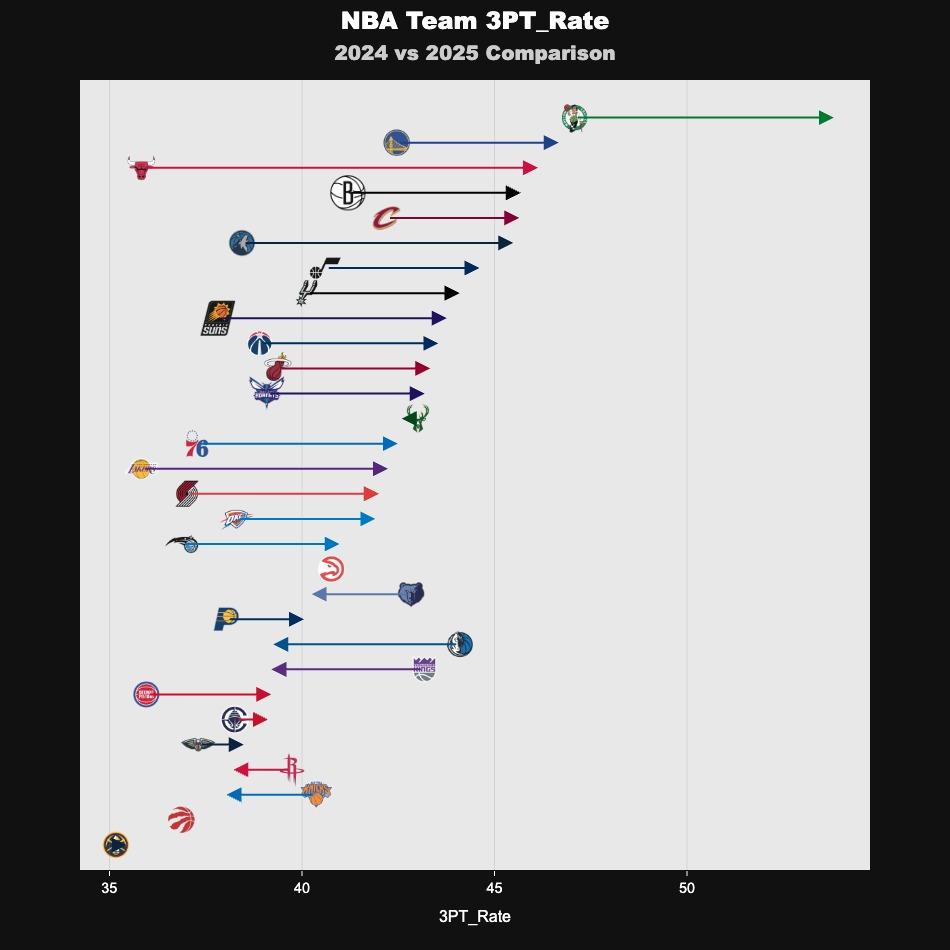
The other big difference is their speed. The Bulls ranked 15th in offensive pace last season and are now leading the league. (This comes after they actually got slower from 2022-23 to 2023-24.) They’ve also gone from 26th to fourth in fast-break points. “It’s just the way we play the game. I think it wears teams down. We get up and down. We run. We put heat on teams to get back, and a lot of veteran teams don’t particularly want to get back and play in transition, so we understand our game plan and our identity,” Giddey recently said.
Rookie forward Matas Buzelis is also starting to look like Chicago’s best draft pick since Lauri Markkanen back in 2017. At a wiry 6-foot-10, the 20-year-old is a burgeoning showstopper with feel, athleticism, a quick release on his 3-ball, and enough of Donovan’s confidence to match up—and even kinda hold his own!—against someone like Kevin Durant:
Buzelis, the 11th pick last year, has been the biggest surprise of the Bulls’ stretch run. He flashed playmaking chops in a recent loss against the Mavericks, blocked Chet Holmgren three times in the first half of a recent loss against the Thunder, and has shown real juice making plays in the open floor.
And then there’s Giddey, a fascinating, frustrating, singular box-score magnet who's averaging 21.6 points, 8.5 assists, and 9.6 rebounds with a 65.5 true shooting percentage in his last 15 games. Not bad! This is the player Karnišovas says he expected to get when he controversially traded Alex Caruso to the Thunder. Time will tell how long Giddey’s terrific 3-point shooting (he’s made 47.3 percent of 4.7 attempts per game since February 1) will need to last for defenses to treat him with respect—and whether he can ever become enough of a threat in the pick-and-roll to prevent opponents from ducking under screens as often as they do:
But in the meantime he’s been a walking winning play, jolting Chicago’s tempo into fifth gear, relentlessly leveraging his size and know-how on the glass, and making some of the cleanest passes you’ll ever see. Not a coincidence: Most of Giddey’s teammates have a better effective field goal percentage when he’s on the court than not:
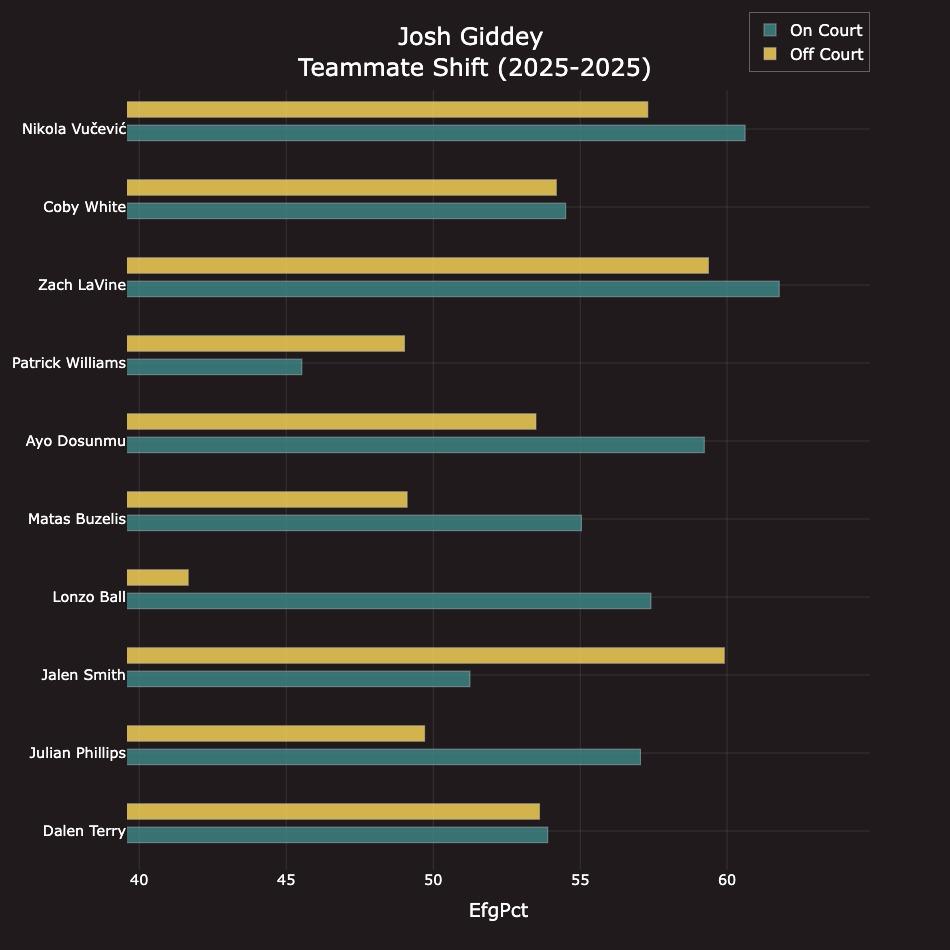
The big question around the league now is how much Giddey is worth. He's a restricted free agent this summer, which plays in Chicago's favor, but I wouldn't be completely shocked to see him get something like the five-year, $150 million extension Jalen Suggs and Jalen Johnson were given by their respective teams back in October. If signed to a number well below that, Giddey may eventually be an above-average starting point guard—relative to how much of the cap he accounts for. The max, on the other hand, would be a disaster.
The cost of that investment is a huge pivot point in Chicago’s rebuild. So is whatever happens to White, who scored at least 20 points in 15 straight games—by far the longest streak of his career—before Monday’s dud against the Thunder. The 25-year-old is extension eligible next season and guaranteed to command far more than his current three-year, $36 million deal. Neither of these two are likely to ever sniff an All-Star team, which brings us to something patently silly Karnišovas said after the trade deadline:
"In terms of moving forward, I think there's different structures that you can try to get to a championship. There's two or three star players and then a lot of role players, or you can build it with nine, 10 very good players. And I think now we're leaning toward having a lot of solid, good players—nine, 10 that can last through a season, because there's going to be injuries. I think more and more teams are doing that."
So yeah, even if that were true, let’s say White and Giddey are locked up as Chicago’s backcourt of the future on contracts with an average annual salary that ranges from $25 million to $35 million. How does Karnišovas plan to afford this 10-deep team that can totally compete for a championship? For those who hadn’t given up on Patrick Williams—like Karnišovas, who signed him to a five-year, $90 million contract last July!—he went scoreless in 17 minutes in a one-point loss against the Mavericks last week and currently has the seventh-lowest true shooting percentage in the league. Few players have been more disappointing this season. Recent draft picks Dalen Terry and Julian Phillips are in Donovan’s rotation but have yet to stand out in any meaningful way.
The Bulls don’t have too much baggage on their books (Nikola Vucevic and Zach Collins are owed nearly $40 million combined on deals that expire after next season) and own all their future first-round picks, which is nice for a team that should want to tank. That obviously isn’t the plan right now, though, with several mid-career veterans in their rotation who, when healthy, actively help this team win. (The Bulls currently have a 3 percent chance to win the Cooper Flagg sweepstakes, but they can’t participate in the lottery if they make the playoffs.)
Meanwhile, Chicago has enjoyed 777 more minutes this year than anyone expected out of Lonzo Ball, whose positive impact on both ends is reflected by the team’s second-best net rating differential and a team-friendly two-year, $20 million extension. Kevin Huerter came from Sacramento in the LaVine trade and looks as free and confident—particularly as a starter—as he has been in several years.
Basketball organizations exist on a highly volatile continuum, evolving, adjusting, and flailing from one owner, front office, coach, and roster to the next. Now that the Bulls have finally dipped their toe in the waters of a genuine rebuild, it’ll be interesting to see how long Karnišovas can stand life in the lottery.
There’s a difference between making the play-in as a stale, aging, needlessly expensive group and being what the Bulls are today. There’s also a cold splash of reality in knowing there’s a decent chance that zero players on this roster will ever make an All-Star team, and that so much more work—i.e., losing—needs to happen before they can make serious noise in the postseason.
“We're committing to building a sustainable, competitive team,” Karnišovas said in February. “We're not OK with being in the middle. Curating a team that competes at the high level and can compete for a championship has been our goal." (It’s worth mentioning that he said the same thing after Chicago was eliminated from last year’s play-in tournament: "I'm thinking about winning. That's why I'm here. I'm not here to stay in the middle.”)
Time will tell how much patience this organization has, or how accurately they will evaluate the players on today’s team. It’s nice to see Chicago bend in the right direction but easy to be pessimistic about where it goes from here.

